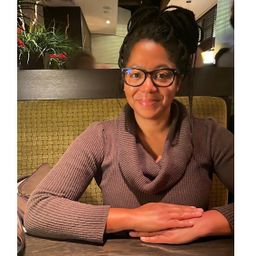Suzanne Mackenzie Memorial Lecture and reception
My Session Status
Event details
- The doors will open at 16h30
- The lecture will start at 17h30
- The lecture takes 1,5 hr (including Q & A)
- The reception will continue for 1,5 hr after the lecture. Drinks and hors d’oeuvres will be served both before and after the lecture, but not during it (Only the first drinks will be free for the first 75 attendees).
What is the Suzanne Mackenzie Memorial Lecture (SMML)
The Feminist Intersectional Solidarity Group (FIGS), formerly known as Canadian Women and Geography (CWAG), is a Study Group of the Canadian Association of Geographers (CAG). Every two years, FIGS hosts the Suzanne Mackenzie Memorial Lecture (SMML) as part of an Annual Meeting of the CAG. This is an open all-gender event. All attendees of the CAG Annual Meeting are welcome to enjoy the talk and reception.
This lecture is a privilege and honour bestowed on a feminist geographer identified by FIGS. We welcome suggestions for the SMML throughout the year, and also at our annual meetings. The person who delivers the talk is chosen for their research, service, teaching, and/or activism work. They are invited to speak because they embody interests, influences, or characteristics shared with Suzanne Mackenzie. She was a beloved feminist geographer who left this world far too young, at age 48, in 1998.
As indicated on the FIGS pages of the CAG website, “Suzanne Mackenzie was a much-beloved member of the geographical community, both in Canada and around the world. A pioneer in feminist urban geography, she contributed actively to discussions and research about women and geography and continues to be remembered for her courage, her commitment to feminism, her deep sense of caring for friends, family and students, her sense of justice and her irrepressible humour”.
The fund that supports this talk continues to be funded from donations in her memory and in support of feminist geography. FIGS uses these dedicated funds to support the speaker, and to contribute to a reception hosted by the CAG.
We host this lecture to keep Suzanne Mackenzie’s memory alive, to recognize feminist geographers as part of the CAG, and to bring geographers together in appreciation of feminist geography.
For more information, please see: https://www.cag-acg.ca/figs
About the lecture
Title : Racial Geographies of Land and Domestic Service in Panama by Sharlene Mollett
Abstract : Foreign land control and Afro-Panamanian women domestics are mutually constituted and embedded in tourism development in Panama. In this article, I center the racial and patriarchal logics of dispossession informing land control, a process that connects 21st century residential tourism development to 20th century US Imperial formations in the making of the Panama Canal. My approach blends ethnographic research with historical data collection, newspapers and development related policy documents drawn across a variety of research sites in Panama, Spain and North America. To begin, I briefly trace the contemporary context of tourism induced land dispossession and the growing tenure insecurities for Afro-Panamanian communities living on the shores of the Panamanian Caribbean. Here I show how residential tourism development reproduces settler colonial landscapes. Further, I place in conversation the concepts of postcolonial intersectionality and cuerpo-territorio (Cabnal 2015) to illustrate how land control and domestic service are interconnected, punctuating how land is not the only site of colonial governance. Following, I historicize tourism in Panama through tracing the discursive narratives of imperial formations in the early period of US Empire and the construction of the Panama Canal. I trace elite travel narratives, newspapers and memoirs to link the racialized labor regimes of the Canal to the domestic spaces of the Canal zone. Finally, I argue that foreign land acquisitions and domestic service are inextricably entangled in tourism development across time and space in Panama.
Biography
Sharlene Mollett is an Associate Professor in the Centre for Critical Development Studies and the Department of Human Geography, and a Distinguished Professor in Feminist Cultural Geography, Nature and Society at the University of Toronto Scarborough. As a feminist political ecologist and cultural geographer, Sharlene’s work interrogates multiple forms of power shaping land conflicts in Latin America. Drawing insights from postcolonial, decolonial and critical feminist/racial studies in the Americas, she examines the multiple ways race, gender and sexuality shape natural resource conflicts and land control embedded in a variety of international development projects, namely, protected area management, land registration and residential tourism development in Central America.
